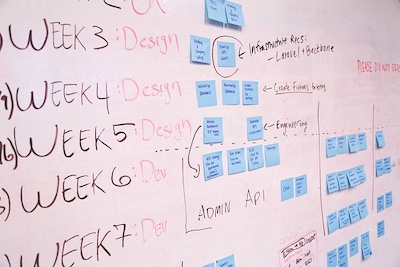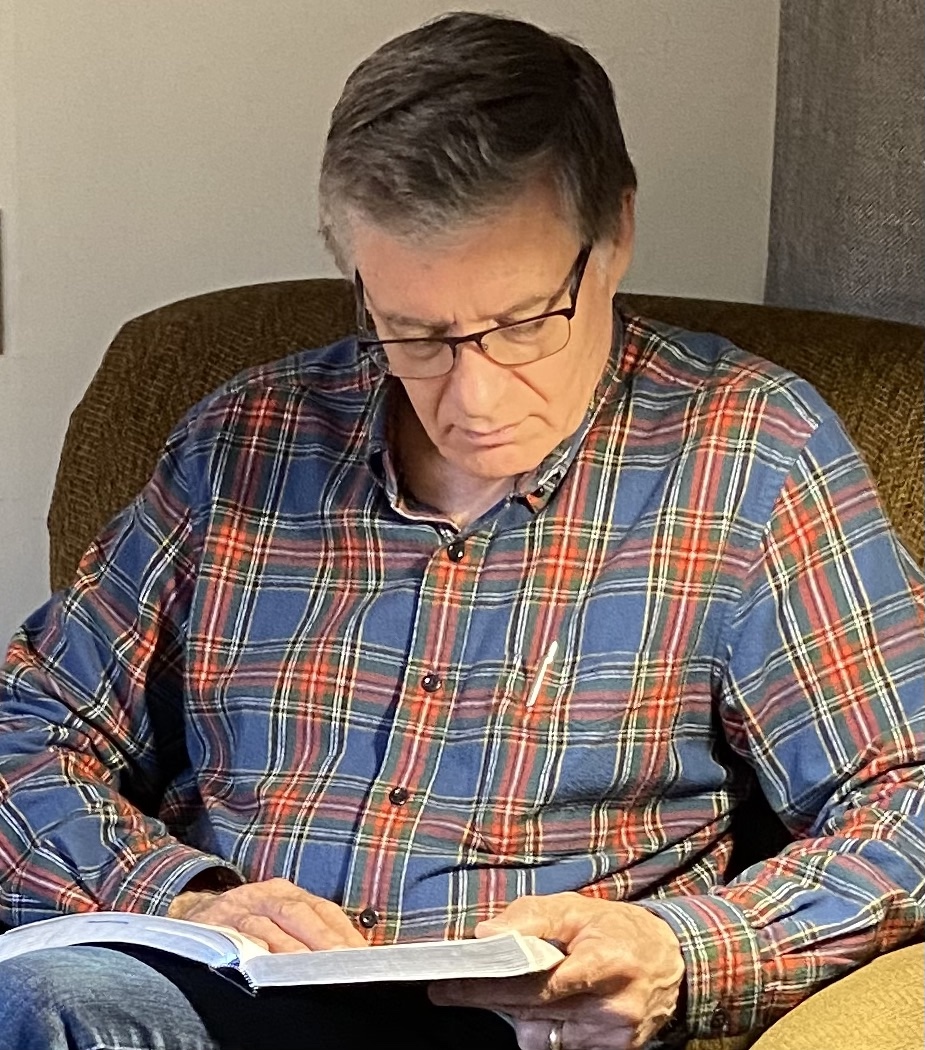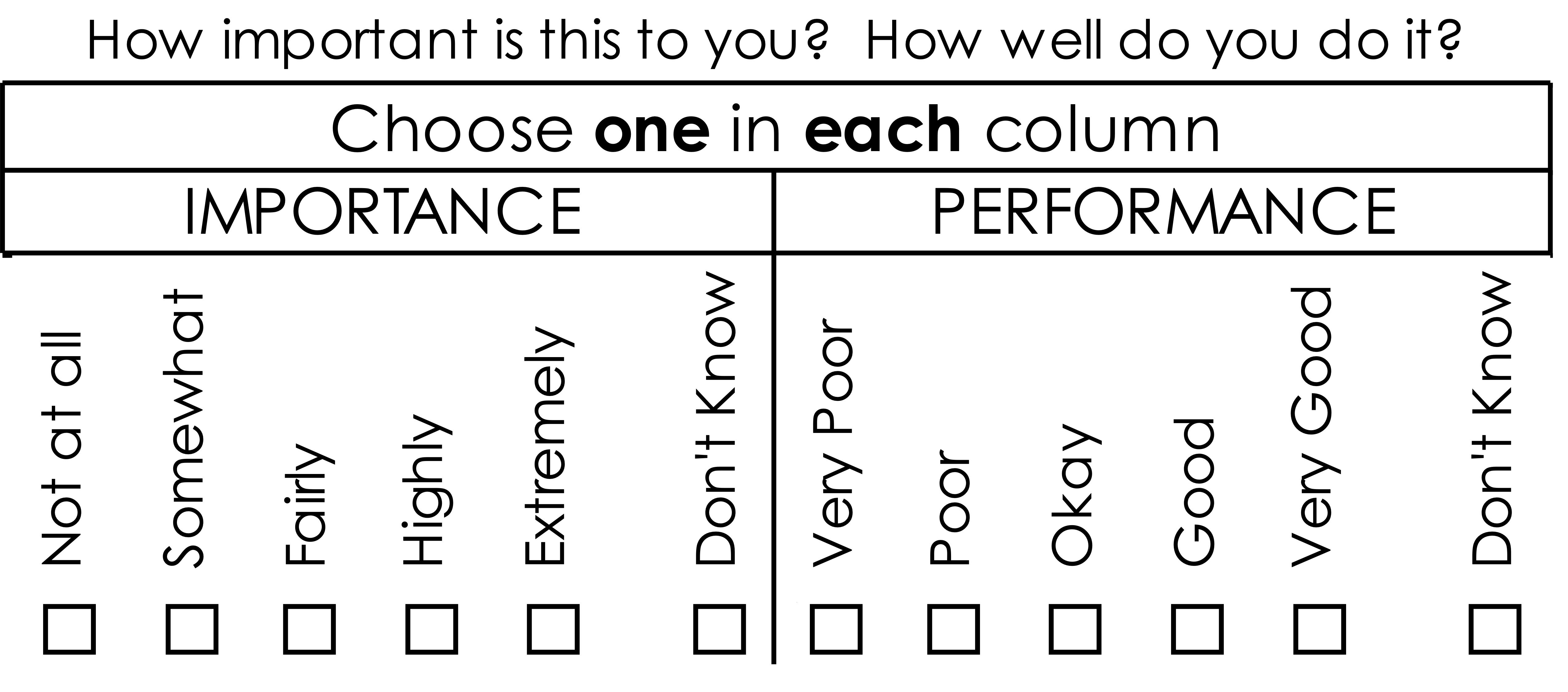What to Do When Overwhelmed? Break it Down into Parts
- Home
- Basic Productivity Skills
- What to Do When Overwhelmed
Here's what to do when overwhelmed with a task or initiative that seems way too big. Break it down into parts.
Struggling with something that seems too big for you? People often get overwhelmed by ‘too much’. They can’t handle so much information or so many steps all at one time. But there is a solution. Deliberately break it down into smaller pieces.

Does
it have several phases? Deal with phase one first. Does it have too much
information to absorb? Read a summary first. Does it consist of a whole series
of responsibilities with multiple people? Isolate each person’s responsibility
first and then see how each fits the whole.
Additionally you can get some assistance from someone who is good at grasping the big picture. Have them work with you to lessen the intimidation and gain clarity so you can move forward with confidence.
"Some of you may be reluctant to lower your sights even the least bit. Although it may feel like a blow to your pride to choose a minimal goal, we think that it could ultimately be more rewarding for you. You can build on real accomplishment by achieving your goal step by step, rather than by insisting on lofty goals and doing nothing."
Jane Burka, Lenora Yuen, Procrastination
Five Days of Coaching on What to Do When Overwhelmed as a Leader
DAY ONE
Make a list of those projects, initiatives, responsibilities or upcoming decisions that seem too big for you. They are creating tension or causing you to feel overwhelmed and stuck. When you think of the big picture, what is missing – knowledge, skill, attitude, or something else? Resolve to not put it off any longer but shoot for small solutions starting today.
The Coach asks:
- As suggested above, make a list that identifies those "overwhelming" multi-part things you are concerned about.
- What do you notice as you reflect on this list? What seems to be the source of the sense of overwhelm? If there is more than one item on the list, what are the commonalities? The differences? The degrees of overwhelm each represents? Reflect on what is external and what is internal as you consider this overwhelm.
- Where does the big need seem to lie? What's missing? Knowledge, skill, attitude, determination, something else? Generally if you can name it, you can do something about it.
- Make a decision to zoom out and "look at the big picture," then zoom in to "notice the details" (the component pieces) that make up the big picture. Refrain from moving away and instead move toward the situation, with an attitude of once and for all taking charge of it.
DAY TWO
Break one of the projects on your list into two to five logical parts or steps. What's the desired outcome of each? Who needs to take ownership of it? What structures need to be put into place to support each step? What specific, decisive action needs to be taken for each of the parts you created?
The Coach asks:
- Take a single initiative, project, or task and divide it into several parts that seem most logical to you. List what the achievement of each of these parts would be? You've just moved from one big whole, to three or four doable parts, or sub-tasks.
- Looking at each sub-task. You know the desired outcome. Now who needs to do it? What structure or resources do they need to complete it? How will you measure whether or not it is done?
- Take action on the above. Consider what to do when overwhelmed. Simply, break it down again into smaller parts and deal with each separately. Follow-through piece by piece, step by step, until conclusion.
- What have you noticed about your overwhelm diminishing as you have done this? How can you make this repeatable over and over again?
DAY THREE
Who do you have in your network who can take big things and break them down into manageable steps? If need be, call them. Ask them for some time and present your problem. They may be able to provide clear thinking and advice.
The Coach asks:
- It may be that you are not a leader who can easily visualize the parts of a situation. That's okay, as long as you have people who can. Identify one or two people who can assist in breaking things down into more manageable chunks. Some coaches, like myself, are also adept at helping you think many situations through.
- How could you make best use of these people you have identified? Under what circumstances would you call on them? How will you clearly convey what you need from them?
- Clarity rules. Don't be so overwhelmed that you can't even articulate what the big situation or initiative is that needs attention. Practice clarity in how you describe situations.
DAY FOUR
Take what you have learned this week and create a system, flow chart or simple planning tool that can help you deal with big tasks in the future, based on the ones you've already completed successfully.
The Coach asks:
- Create a simple flow chart to show your process in dealing with big tasks. Keep it simple. It's probably no more than five steps.
- Don't be tied to your initial drawing. Keep it a "work in progress" until you are satisfied you can simply glance at it and know how to proceed next. How satisfied are you that this has proven workable? What adjustments, if any, need to be made?
- Keep your chart handy for reference. Share it with others who become part of the process of execution. How can you make this work for you?
- What have you been learning about how doable projects are? What are one or two most valuable things for you to reflect on and remember when this type of thing comes up?
DAY FIVE
Take major decisive action on some part of your work. Often that will break the log-jam and lead you to new clarity and effective action.
The Coach asks:
- If you've run into one of those situations that feels "too big," take decisive action on some small doable part of the big whole. A small win can often lead to further wins. It can jump start greater clarity, focus, decision-making and action.
- How has your attitude been shifting as you've worked on what to do when overwhelmed?
- Who could you share your newfound approach and attitude with, that would appreciate your victory?
The Lord Makes Firm the Steps

As a Christian Executive Leadership Coach I encourage Christian leaders to reflect on God's Word to add to their wisdom.
- Ps 37:23,24 The Lord makes firm the steps of the one who delights in him; though he may stumble, he will not fall, for the Lord upholds him with his hand.
- Ps 32:8 I will instruct you and teach you in the way you should go; I will counsel you with my loving eye on you.
- Ex 18:13-26 Read this account of Moses and reflect on how he had "too much." Listening to wise counsel he broke this large task, need and responsibility down into smaller pieces, bringing in others to help carry the load. What Moses was pushing through on would have cost him. Stepping back and determining the parts that made the whole, allowed him to view things differently and make his work more sustainable, and we assume, more effective.
If you are a leader, executive, or senior level professional looking to work with a Christian Executive Coach, I invite you to connect with me here.
If appropriate, we can meet by phone or Zoom to discuss your situation.
Record Your Progress
This is your opportunity to track your progress. Start by asking yourself how important this practice is to you? Record the importance as - not at all, somewhat, fairly, highly or extremely.
Now next to it ask yourself how well you carry out this practice. Record your performance as - very poor, poor, okay, good or very good.

The things we track, we pay attention to. Across time, come back and record your new results. You will find that as you are intentional about making improvements, you will bump your "score" up higher.
This is significant. Don't miss the opportunity to acknowledge your success, and use it as a springboard for making even further gain.
Notes
We seem to live in an age of overwhelm. It's a byproduct of our modern culture. All sorts of leaders are seeking strategies for what to do when overwhelmed.
In leadership, you either make peace with it, or be consumed by it. Better to develop strategies that help you navigate the sea of potential overwhelm.
Contact me here Privacy Policy
© G.E.Wood and Associates. All Rights Reserved in all media.
G.E. Wood and Associates is an international coaching firm registered in Ontario, Canada
142 Pratt Crescent, Gravenhurst, Ontario, Canada, P1P 1P5